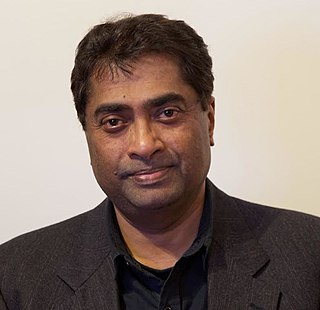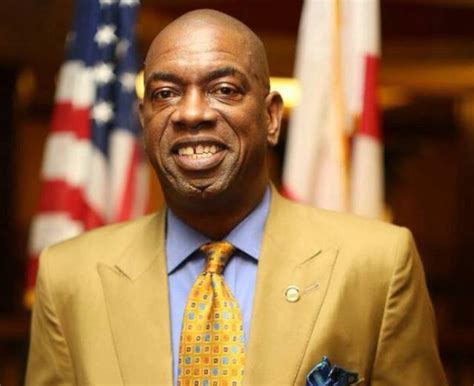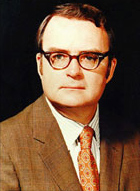Top 218 Psychologists Quotes & Sayings - Page 3
Explore popular Psychologists quotes.
Last updated on April 20, 2025.
How much more generous it would be if, instead of writing parables about childhood wounds, psychologists were to accept that some differences between the sexes just are, that they are in the nature of the beasts, because each sex has an evolved tendency to develop that way in response to experience.
When I think about discussions at the Society for Philosophy and Psychology, a group which includes not only philosophers and psychologists, but also computer scientists and linguists, it is noteworthy that one can't always tell just from the content of particular contributions from the audience, whether a given questioner is a philosopher or an empirical scientist.
Parents are used to being made to feel guilty about...their contribution to the population problem, the school tax burden, and declining test scores. They expect to be blamed by teachers and psychologists, if not by police. And they will be blamed by the children themselves. It is hardy a wonder, then, that they withdraw into what used to be called "permissiveness" but is really neglect.
Religion and science, for example, are often though to be opponents, but as I have shown, the insights of ancient religions and of modern science are both needed to reach a full understanding of human nature and the conditions of human satisfaction. The ancients may have known little about biology, chemistry, physics, but many were good psychologists.
...the pretense is made, as it has been made in relation to the finding of any extension of truth, that to do away with right and wrong would produce uncivilized people, immorality, lawlessness and social chaos. The fact is that most psychiatrists and psychologists and other respected people have escaped from moral chains and are able to think freely.
Busy people all make the same mistake: they assume they are short on time, which of course, they are. But time is not their only scarce resource. They are also short on bandwidth. By bandwidth I mean basic cognitive resources - psychologists call them working memory and executive control - that we use in nearly every activity.
But it is the bane of psychology to suppose that where results are similar, processes must be the same. Psychologists are too apt to reason as geometers would, if the latter were to say that the diameter of a circle is the same thing as its semi-circumference, because, forsooth, they terminate in the same two points.
There are still psychologists who, in a basic misunderstanding, think that gestalt theory tends to underestimate the role of past experience. Gestalt theory tries to differentiate between and-summative aggregates, on the one hand, and gestalten, structures, on the other, both in sub-wholes and in the total field, and to develop appropriate scientific tools for investigating the latter.
For many, the regressive belief in superstitions and miracles is an escape from the hardships of life. Once trapped into irrationalism, they become more incapable of mastering reality. It is a vicious circle, like an addiction. They become vulnerable to exploitation by astrologers, godmen, dubious pseudo-psychologists, corrupt politicians and the whole mega-industry of irrationalism.
With tremendous clarity and wisdom, Daniel Tomasulo has crafted a memoir at once heartbreaking and uplifting. Layers of time and memory—childhood, adolescence, early adulthood, middle age—are so beautifully revealed here, a trenchant reminder that our pasts are alive inside of us. There are psychologists who can write, and writers who can psychologize, but rarely have the two met on the page with such moving, profound results.
In an extensive reading of recent books by psychologists, psychoanalysts, psychiatrists, and inspirationalists, I have discovered that they all suffer from one or more of these expression-complexes: italicizing, capitalizing, exclamation-pointing, multiple-interrogating, and itemizing. These are all forms of what the psychos themselves would call, if they faced their condition frankly, Rhetorical-Over-Compensation.
In Finland they are brilliant at ensuring no young person falls behind. From the day a child is born they are visited by health workers who assess their well-being and developmental. The health workers work with psychologists and speech therapists and aim to identify any problems at a very early stage.
People are, by and large, quite poor at judging correct absolute values but are astute about determining relative values. Psychologists call this coherent arbitrariness, which suggests that individuals are coherent when they compare prices on a relative basis but arbitrary when those prices are considered versus fundamental value.
A glad welcome to this affirmation by a group of psychologists that the self does not stop at the skin nor even with the circle of human relationships but is interwoven with the lives of trees and animals and soil; that caring for the deepest needs of persons and caring for our threatened planet are not in conflict.
I thought psychologists were people who rob, figuratively of course, money from the insecure. But they are not. They are people who are there to help you, and if you find a good psychologist, they will allow you to talk about everything and open up, without the slightest of fears, and that is no easy thing.
When we are in the grasp of illusion - or, for that matter, whenever we have a new idea - instead of searching for ways to prove our ideas wrong, we usually attempt to prove them correct. Psychologists call this the confirmation bias, and it presents a major impediment of our ability to break free from the misinterpretation of randomness.
Humor, a good sense of it, is to Americans what manhood is to Spaniards, and we will go to great lengths to prove it. Experiments with laboratory rats have shown that, if one psychologist in the room laughs at something a rat does, all of the other psychologists will laugh equally. Nobody wants to be left holding the joke.
Can a controlled experiment explain why people like Kewpie dolls in one year, Beanie Babies in another, and American Girl dolls this year? Yet social scientists are asked to answer analogous questions. We economists and perhaps psychologists shouldn't overreact to the derision. That is, we shouldn't try to overlay a false sense of precision on our admittedly squooshy work.
It is culturally constructed, but not unnecessary. A crisis is a period in a person's life that lasts at least a year during which there is an unusual level of emotional instability, negativity, and crucially, major changes. This is important because right now, when you diagnose mental health problems, where you are in life doesn't really come into it. Psychologists are saying that it should.
The majority of parents are poor psychologists and give their children the most questionable moral trainings. It is perhaps in this domain that one realized most how keenly how immoral it can be to believe too much in morality, and how much more precious is a little humanity than all the rules in the world.
The compelling drive to get at the truth is what improves us all as psychologists and is part and parcel of intellectual integrity. But I do urge that we not let the drive for honesty put blinders on us and cut off our range of vision so that we miss the very thing we set out the understand - namely, the living human being.
I would hate to be in high school now. Psychologists talk about the 'imaginary audience' that teens seem to feel they have around them and that makes them think they have to keep up their image all the time. Now with Facebook and MySpace and 24/7 online access, that imaginary audience has become real.
Characters in Hollywood movies encounter a lot of car chases. Characters in novels rarely wash their hands or do their laundry. And in the work of moral psychologists, people deliberate and reflect a lot. They deliberate, one sometimes feels, whenever they perform an action, and certainly whenever they act for good reasons.
Philosophers and psychologists have long puzzled over the question of how we know as much as we do despite our limited experiences. One way is to see how children learn. Another example is consciousness. The concept is usually explored by armchair academics. Looking at kids expands our conceptions of consciousness.
Considering the importance of resentment in our lives, and the damage it does, it receives scant attention from psychiatrists and psychologists. Resentment is a great rationalizer: it presents us with selected versions of our own past, so that we do not recognize our own mistakes and avoid the necessity to make painful choices.
Samuel Johnson called it the vanity of human wishes, and Buddhists talk about the endless cycle of desire. Social psychologists say we get trapped on a hedonic treadmill. What they all mean is that we wish, plan and work for things that we think will make us happy, but when we finally get them, we aren't nearly as happy as we thought we'd be.
The re-interpretation and eventually (sic) eradication of the concept of right and wrong which has been the basis of child training, the substitution of intelligent and rational thinking for faith... are the belated objectives of practically all effective psychotherapy. The fact is, that most psychiatrists and psychologists and other respectable people have escaped from these moral chains and are able to observe and think freely.
For the past several generations we've forgotten what the psychologists call our archaic understanding, a willingness to know things in their deepest, most mythic sense. We're all born with archaic understanding, and I'd guess that the loss of it goes directly along with the loss of ourselves as creators.
I'm climbing into a vehicle that has a powerful influence on our culture. I'd like to make it do something good. The media is populated with attorneys, psychologists and pundits but there are only three physicians: me, Dr. Oz and Sanjay Gupta. We are the only MDs who practice medicine and have board certifications in one or two fields. That's it.
Women's rights in essence is really a movement for freedom, a movement for equality, for the dignity of all women, for those who work outside the home and those who dedicate themselves with more altruism than any profession I know to being wives and mothers, cooks and chauffeurs, and child psychologists and loving human beings.
On their own, each [character] is a victim of no importance. But when you bring them together, they become a dangerous weapon. Jeanne is the vowel and Sophie the consonant. Psychologists know this phenomenon well. Each individual is harmless, but together they create an explosive chemical reaction. It's like Bonnie and Clyde, like Thelma and Louise.
Golf is no longer a game of hitting the ball, finding it, and hitting it again. There is wind to be measured, whether that means tossing blades of grass in the air or studying the gentle movement of 60-foot high branches. There are caddie conferences for even the most routine shots. There are sports psychologists who tell players not to hit until they're ready.

























































